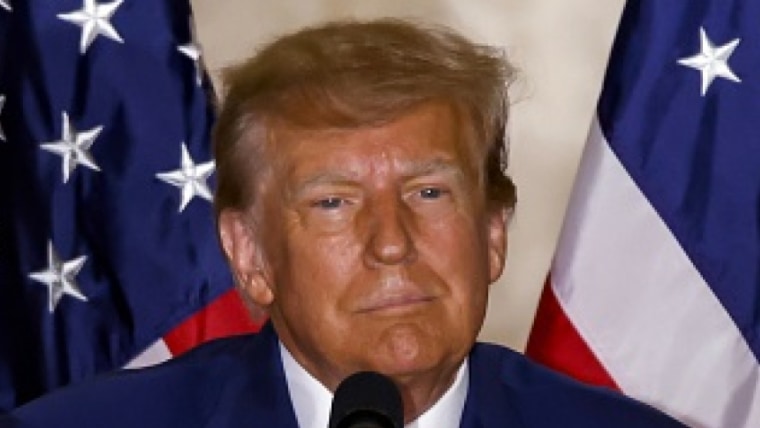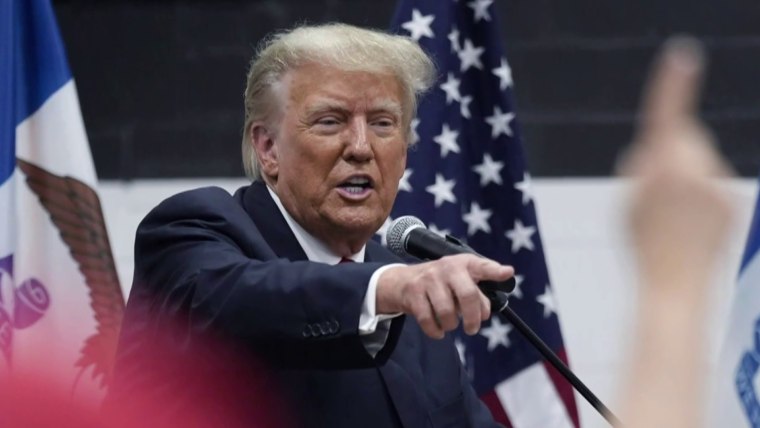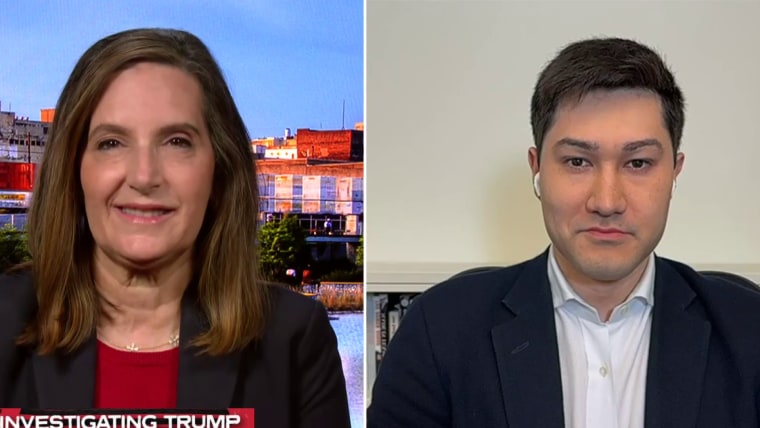Once again, former President Donald Trump has been indicted. And once again, blue America is asking a familiar question: Will this be the legal case that takes Trump out?
NBC News reports that Trump was indicted on seven charges as part of special counsel Jack Smith's investigation into his handling of classified documents. We don’t know what the exact charges are yet, but based on the potential charges that have been discussed regarding Trump’s mishandling of classified documents, it’s more likely to end in a conviction than his previous indictment in New York for falsifying business records in order to pay hush money to adult film star Stormy Daniels. Experts have made that prediction based what’s likely to be a simpler legal theory behind the charges.
Banking on convictions to eliminate the threat posed by Trump is shortsighted.
It is undoubtedly exciting to imagine Trump being held accountable for his misconduct. But placing any faith in these charges to definitively knock Trump out of politics is a bad idea. In fact, placing faith in any past or future indictment or investigation to do so is a potentially dangerous idea.
Banking on convictions to eliminate the threat posed by Trump is shortsighted. There are virtually no convictions that can bar Trump from winning office or acting as president, and he has a variety of tools available to either avoid being sentenced before taking office or pardoning himself upon taking office. A Trump victory remains plausible, and attention and energy should remain laser focused on mobilizing and making the electoral case against an authoritarian threat. Nobody is coming to save us — only we can protect ourselves.
The recurring liberal fantasy of what could be called “death by prosecutor” dates back to the beginning of the Trump presidency, with the hope that Trump’s ties to Russia could culminate in his demise. Establishment liberal media and a set of online activists were consumed with Trump’s ties to Russia for years and speculated fervently — and often irresponsibly — about their scope. Special counsel Robert Mueller, who was charged with investigating those ties and assessing their criminality, was not just closely watched but worshipped by an obsessive cult that depicted him as a superhero and even a sex icon. I vividly recall a former colleague at another outlet telling me he was sure this would be the biggest story of our lives.
There are a couple of reasons the Trump-Russia fantasy was so appealing to the contemporary liberal imagination. First, it promised a restoration of order: At a time when Trump’s unpredictability and contempt for norms appeared to be threatening the republic, convicting Trump of crimes would have marked the most pointed victory for a rules-based system. Second, it involved a technocratic intervention from an institution that outwardly stands above the political fray, and would have defeated Trump based on an expert appraisal of truth. This solution to the Trump problem was attractive because it was neat and definitive, and it affirmed the idea of America as a place where the Trump phenomenon couldn’t happen.
This fantasy was not fulfilled. When Mueller’s 448-page report came out, there was widespread dismay among his fanbase: Mueller found impropriety, but he determined that there was not sufficient evidence of a criminal conspiracy, and he declined to say whether he believed Trump had obstructed justice. Mueller’s assessment was a gut punch to the crowd that was convinced the report would produce a slam-dunk case for charging Trump with crimes and impeaching him.
On a legal level, even imprisonment would not prohibit Trump from being on the ballot.
Now the possibility of yet another cycle of fervent wishing and dashed hopes has emerged again with the constant trickle of news tied to multiple investigations into Trump’s misconduct. Between the New York indictment over his hush money payments, the federal indictment over his handling of documents and still ongoing state and federal investigations into Trump’s election interference, there are a lot of “death by prosecutor” scenarios coming up. And it’s already shaping the way people think about 2024. At social gatherings I encounter people all the time who wonder aloud if Trump’s political career might be on the brink of finally ending. Political analysts discuss whether the stink of criminality will obliterate Trump’s chances, or if certain charges could render him legally ineligible to take office. Protesters have mobilized to call for Trump’s arrest. Alongside the perfectly defensible desire for legal accountability for Trump is something else: a yearning for political closure, an image of Trump in a jumpsuit stuck in a jail cell, forever shut out from the Oval Office.
Yet once again, disappointment is likely to be on the horizon. Legal experts have pointed out that Trump is expected to use relentless delay tactics to push back any trials, fighting over everything from what evidence can be submitted to the legitimacy of witnesses. “It’s absolutely within the realm of possibility that we’re not going to trial before the election,” Loyola Law School professor and MSNBC columnist Jessica Levinson told me. Even if proceedings move swiftly, it’s not a given that convictions would hurt Trump. That’s because sentences won’t necessarily result in Trump spending any time behind bars before or during a presidency. As Politico reports:
"Many legal experts argue that a state-court sentence would have to be held in abeyance. Whether a federal sentence would also have to be postponed is less clear, but the question might not matter if the new president used his pardon power to set himself free — or preemptively pardon himself from any pending federal charges."
On a legal level, even imprisonment would not prohibit Trump from appearing on the ballot. It’s happened more than once, most notably with socialist candidate Eugene Debs winning nearly a million votes in 1920 while in prison. And as far-fetched as it sounds, many legal scholars believe Trump could even serve as president while in prison.
There is some talk of whether Trump could be blocked from the White house via the 14th Amendment. But legal scholars are divided on whether a portion of the 14th Amendment could bar Trump from holding office. That portion — Section 3 — holds that engaging in insurrection or giving aid or comfort to those who do can prohibit someone from holding office. It's unclear whether it would apply to the presidency, and it's unclear how it would be carried out even if it did apply.
On a political level, it’s possible that an accumulation of indictments and possible convictions could hurt Trump’s chances at winning the presidency. But it’s far from certain that it would. Trump has yet to do anything since his rise to power to lose the support of his core base; his political identity involves openly arguing that political and legal rules should be broken in order to make America great again. And lest we forget, if some 45,000 votes had gone differently in a handful of battleground states in 2020, Trump might have won re-election. Any crises with Biden’s health or the economy, for example, could once again make this race far tighter than it should be.
All this is to say that Americans should not hope for legal intervention from on high. Instead, we should focus proactively on defending and expanding multicultural democracy, pushing policies to share prosperity and disarming right-wing populist narratives. This requires thinking through the enduring appeal of Trumpism, and conceiving of something far more compelling. It requires systematic political organizing at the local, state and national level and building better mobilization infrastructure. It requires a vigilant media ecosystem that doesn't think of legal scoops as more important than the shifting social and economic tectonic plates that have given rise to competing populisms and widespread distrust in major American institutions. Even if Trump doesn’t win the nomination, focusing in advance on these kinds of ideas are important for beating any MAGA Republican on Election Day.
It has always been and it always will be a waste of time for citizens to spend huge amounts of time daydreaming about Trump's fate through a legal prism. He is in the last instance a political problem. And the only surefire way to deal with him in 2024 is to beat him. Let the lawyers do their work — but we need to do ours.



